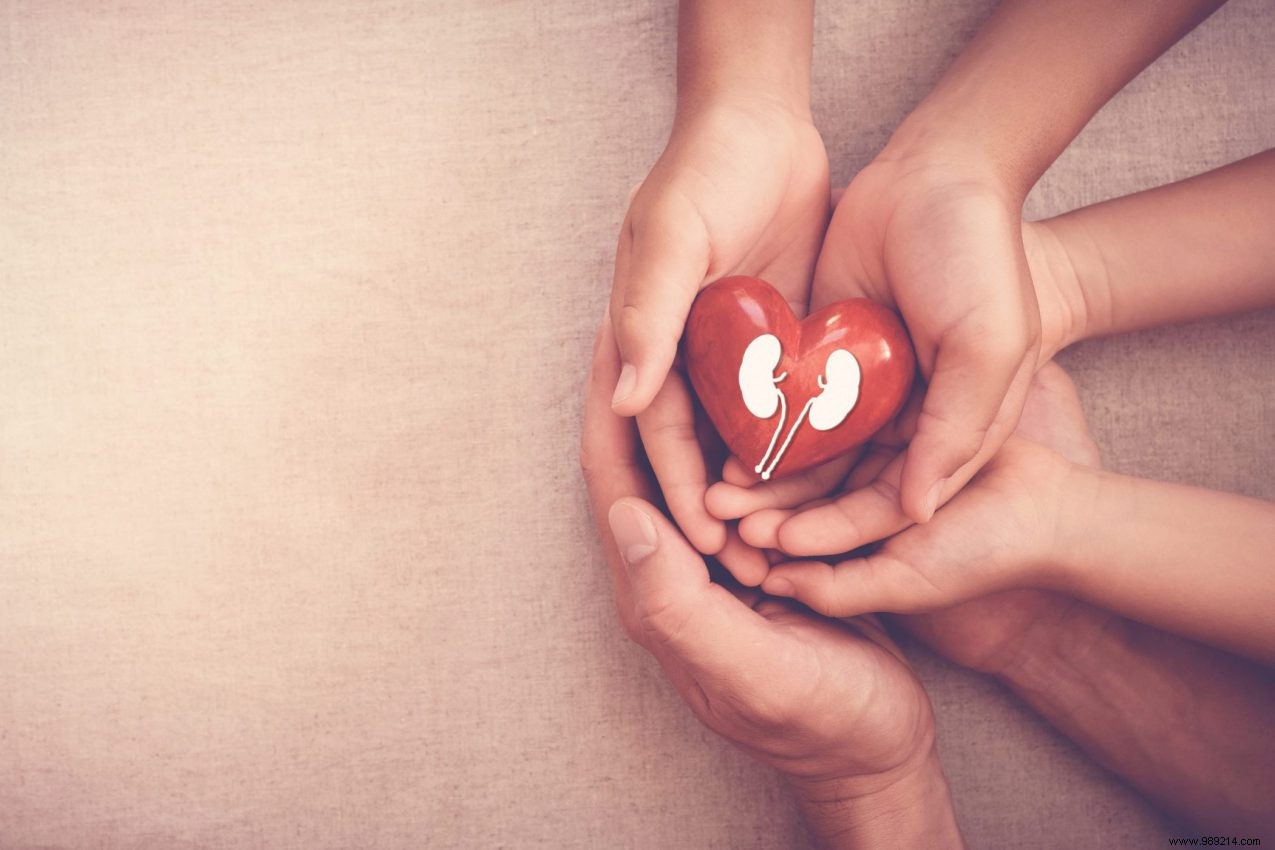
We are happy to take you along some of our organs. This time we look at the kidneys. What exactly do they do?
Last week you read all about the lungs. And now it's the kidneys' turn. Where exactly do they lie, sit or hang, what are they good for and how come you can continue to live happily with one healthy kidney?
Also read:'This is what your intestines do for you'
Your kidneys are located at waist level, on the inside of your back, behind the two lower ribs. Most people are born with two healthy kidneys. However, it also happens that someone is born with only one kidney. If kidney disease develops at a later age in which one (or both) kidney(s) no longer function properly, an organ donor can offer a solution. Sometimes this is even a family member or close acquaintance. With one healthy kidney, someone can simply grow old.
Kidneys purify your blood. With a million (!) small filters they ensure that waste products are removed from your blood. After that filtering – if everything goes well – only one product remains and that is your urine. You of course pee that out, which means that the cleaning cycle has been successful. But in addition, your kidneys also regulate your blood pressure and make hormones that ensure that your body has enough red blood cells. As if that were not enough, they also maintain the moisture and salt levels in your body. So handsome organs.
And precisely because they do, arrange and monitor so much for you, it is extra annoying when things go wrong. When a kidney does not function properly, the waste products accumulate, as it were, and your body poisons itself from within. The accompanying complaints often only come to light late, which means that real kidney damage may already have occurred. The figures do not lie, in our country alone about 1.7 million people have chronic kidney damage. Diabetes and high blood pressure are the culprit in most cases. Do you have this or does it run in your family a lot? It is best to keep an eye on your kidney function.
Would you like to contribute to a healthy survival of your kidneys? The key word is salt. In other words, less salt. Our bodies need salt, but we've been getting too much of it for a few decades now. Our kidneys don't like that. Fortunately, you can cook and eat low-salt. And take a more critical look at the foods you put in your shopping cart. Reading labels makes you wiser!